Monday Miscellany: Even a wounded world holds us
Notes from September 1 - 7
Hello from the mountains of Virginia, where Jordan and I are celebrating our 14th wedding anniversary! This is what our Monday morning looked like:
Today’s letter will be a bit shorter than usual because vacation, but I do have a couple of books to tell you about!
Read this week
Braiding Sweetgrass by Robin Wall Kimmerer is undoubtedly a modern classic of the nature writing genre; I’ve seen it quoted and referenced in countless other books and I’ve heard people speak of it with reverence for years. It’s been on my list for so long! Thank goodness it was chosen for The Stacks book club last month, the nudge I needed to finally get in there and see what the fuss was about.
How can I explain the significance of this work without gushing or going on too long? It’s a sort of ecological bible, a collection of essays about various aspects of the natural world, interwoven with Indigenous mythology and wisdom, scientific information, and Kimmerer’s own memoirs. Her primary focus is the interplay between different species and systems, the mutual benefit that can arise when we appreciate what the earth offers to us and are careful to give back. Some of what she says is so simple and intuitive that it made me angry at humanity—we could be living so abundantly, all of our needs provided for, but instead we’re out here acting like careless, greedy knuckleheads. It’s a shame. And she acknowledges that! But she also avoids descending into a gloom spiral, because
Even a wounded world is feeding us. Even a wounded world holds us, giving us moments of wonder and joy. I choose joy over despair. Not because I have my head in the sand, but because joy is what the earth gives me daily and I must return the gift. (327)
I read some sections in print but listened to others on audio, which Kimmerer herself narrates (in perhaps the gentlest, most pleasant voice I’ve ever heard). And I tell you, the Braiding Sweetgrass hype is real. This book immediately took its place on my shelf of all-time favorites, a source of information and a reminder of beauty that I know I’ll come back to frequently in the future.
Eventide by Therese Bohman (trans. Marlaine Delargy) was a lucky find at McKay’s sometime in the last couple years—it’s from Other Press, and one thing about me is that I will almost always buy a book from a small/independent publisher that I see at the used bookstore. What a breath of fresh air among the billion copies of Where the Crawdads Sing! And for only $3? Come on. I hadn’t heard of this one before I bought it, but the blurb mentioned a woman professor in her forties, and that sounded like just the thing for early September.
Karolina works in the art history department of a university in Stockholm teaching classes, writing, and advising PhD students. She’s emerging from a long-term relationship that has recently ended, slowly learning to exist on her own. The fall term is just beginning and Anton, one of her advisees who has been in Berlin for the past year, returns with news of an exciting breakthrough in his dissertation research. From here, the novel proceeds at an unhurried pace—we’re inside Karolina’s head as she navigates the ins and outs of academia, constantly doubting herself in both professional and personal spheres, the situation with Anton occasionally inching forward. The writing is what’s truly special here, especially considering that Eventide is a work in translation. Take this musing about the intricacies of the natural world, an apt pairing with Robin Wall Kimmerer’s work:
It was so well organized that it was hard not to have faith in a god; she often felt that way when she thought about nature. Everything was calibrated to such a degree of perfection that it was almost impossible to believe that someone hadn’t planned it all, that it wasn’t the result of meticulous and extensive calculations.
But time was the god. Those timescales so dizzyingly vast that she was incapable of understanding them: they had fine-tuned nature into a single, immense and smoothly functioning system where everything had its place in a greater order, everything had a function, everything ate and was eaten, working together, forming a chain. This system had been shaped over an unimaginable period of time, tested during the course of millions of years. (173-174)
And the ending! It’s subtle and understated, but also satisfyingly devious—a devastating insult delivered in a whisper that the recipient won’t fully understand until much later. This book was a serendipitous discovery, and I think my timing was correct; it felt perfect for this back-to-school time of year.
If you purchase a book through the bookshop.org affiliate links in this post, I may earn a small percentage commission. This is an easy way to support my work at no additional cost, and I appreciate it very much—thank you! ♥︎
Haiku round-up
Haiku is a poetic form that originated in Japan, containing seventeen syllables in a five-seven-five pattern. At the beginning of 2024, I started writing one every day, and while traditional examples include thematic reference to the seasons, mine tend to be a bit more all over the place. Here are this week’s efforts—enjoy!
Monday, September 1
Together they dawn, a new week, month, and season Ultimate clean slate
Tuesday, September 2
Mind meandering, pencil wanders over page sketching an exit
Wednesday, September 3
A long-held vision turned swift manifestation enrobed in dark blue
Thursday, September 4
Marching from the west— menacing army of clouds bent on destruction
Friday, September 5
Under orange eye the known turns hazy, dreamlike and evening unfurls
Saturday, September 6
Woods, opening out, reveal a secret abode tucked among poplars
Sunday, September 7
Gaze fixed on forest, my eyes are drawn toward movement: a deer in the trees
Until next time
Hike finished, we’re headed back to our cabin to sit on the porch by the creek and have a snack. I might read a bit more in my current book, A Ghost in the Throat, which I’ll be back next week to tell you about (I’m liking it so far). Tonight will probably consist of leftover chili, an episode of Dexter (just started season 2 in our rewatch), and some time in the hot tub (a must for any mountain cabin rental). Sending you cool air and s’mores made over a campfire and deer wandering out of the forest into the clearing. I hope the rest of your day smells like woodsmoke and pine trees.
See you next Monday, and until then, may your book be this good.
♥︎ Emily


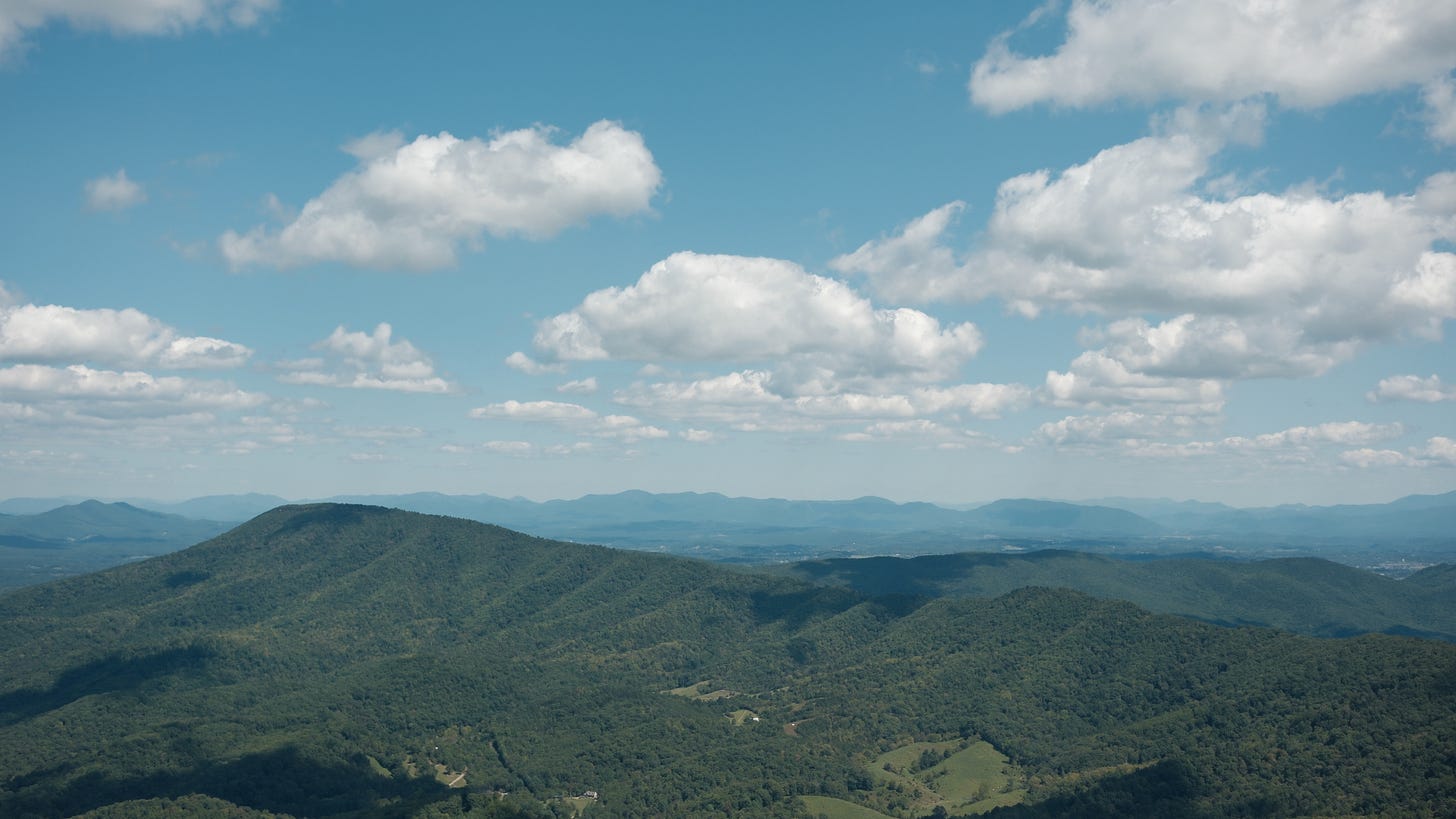
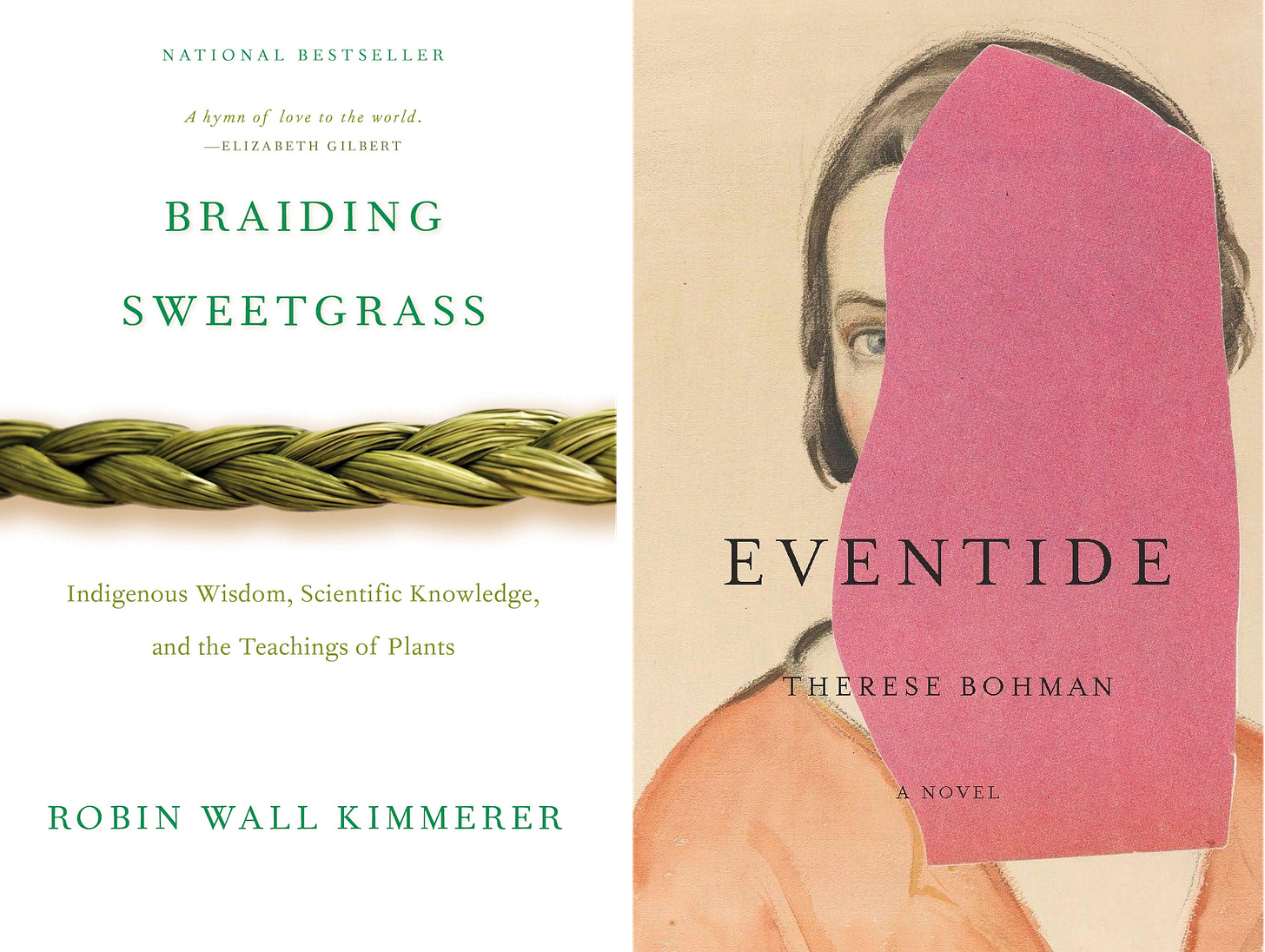
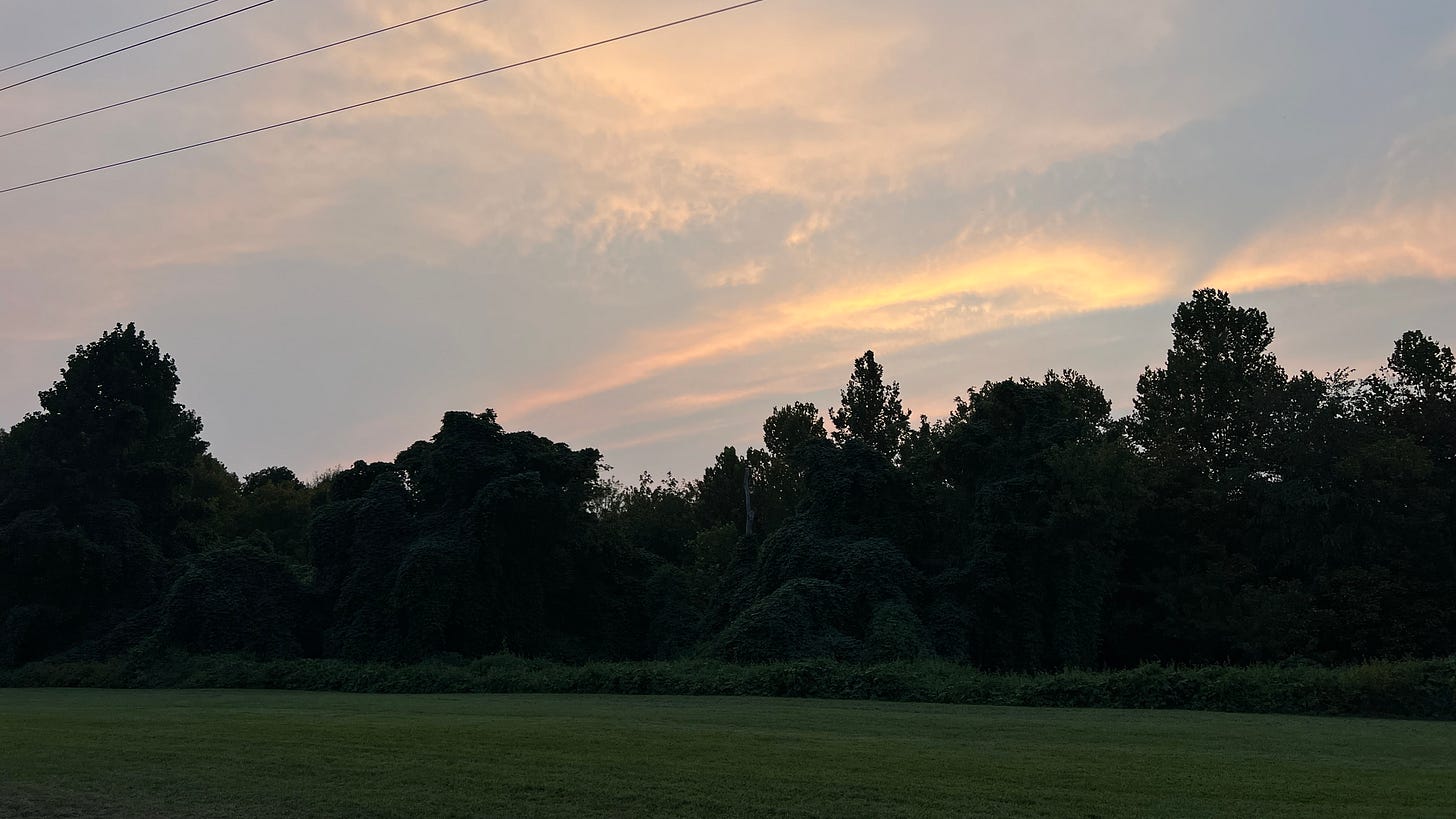
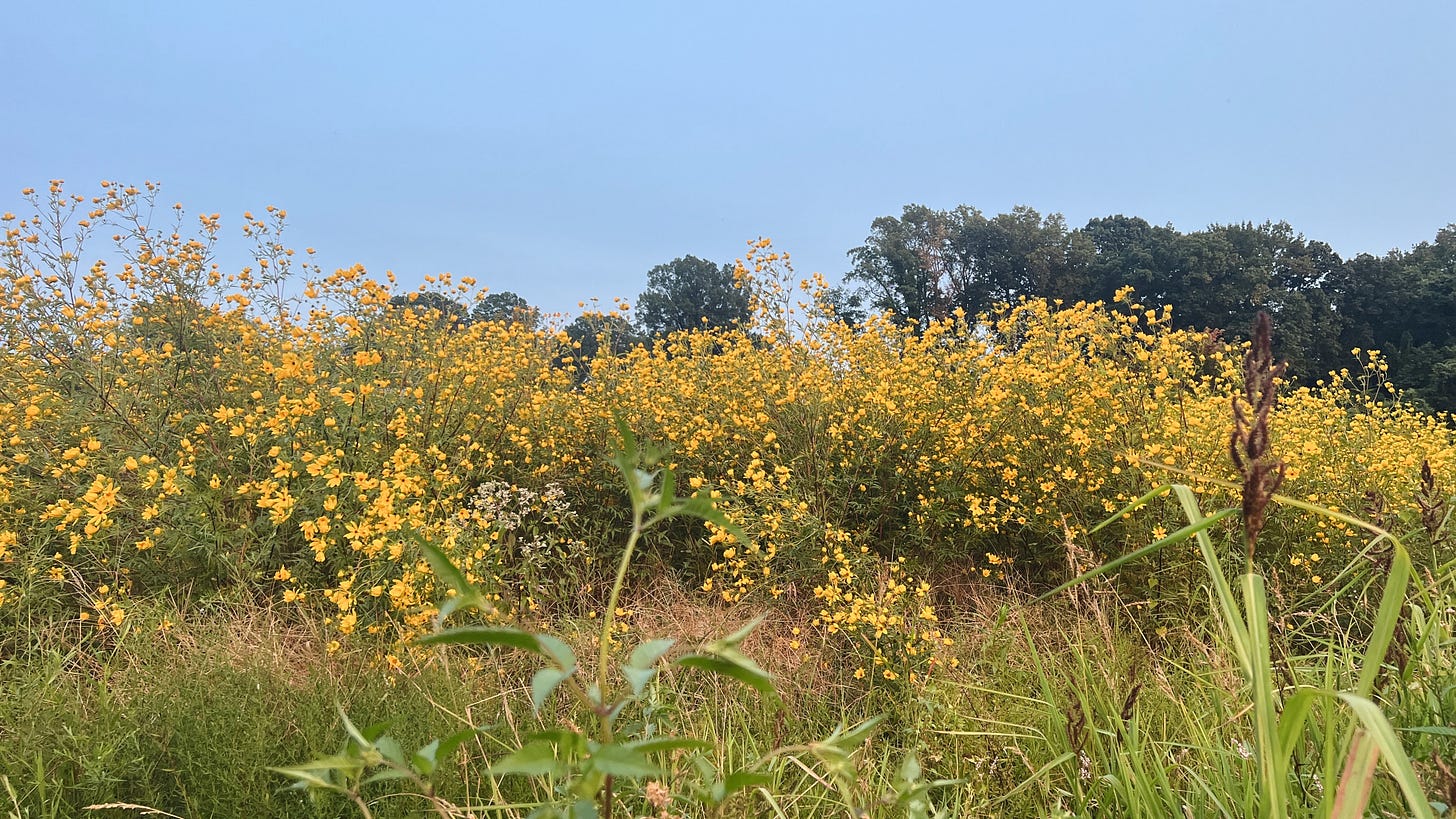
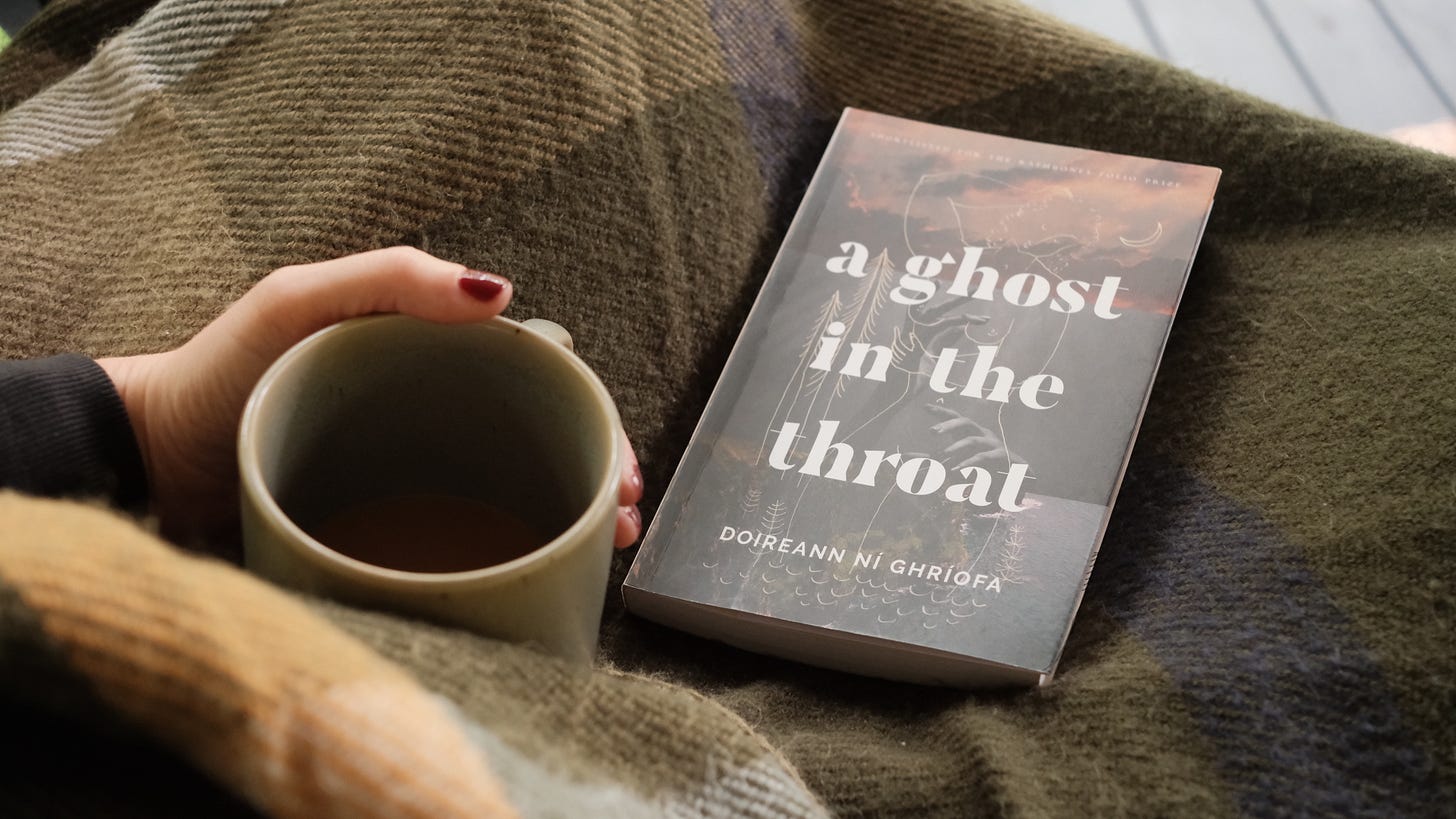
I have paintings of an aster and stalk of goldenrod hanging in my bedroom